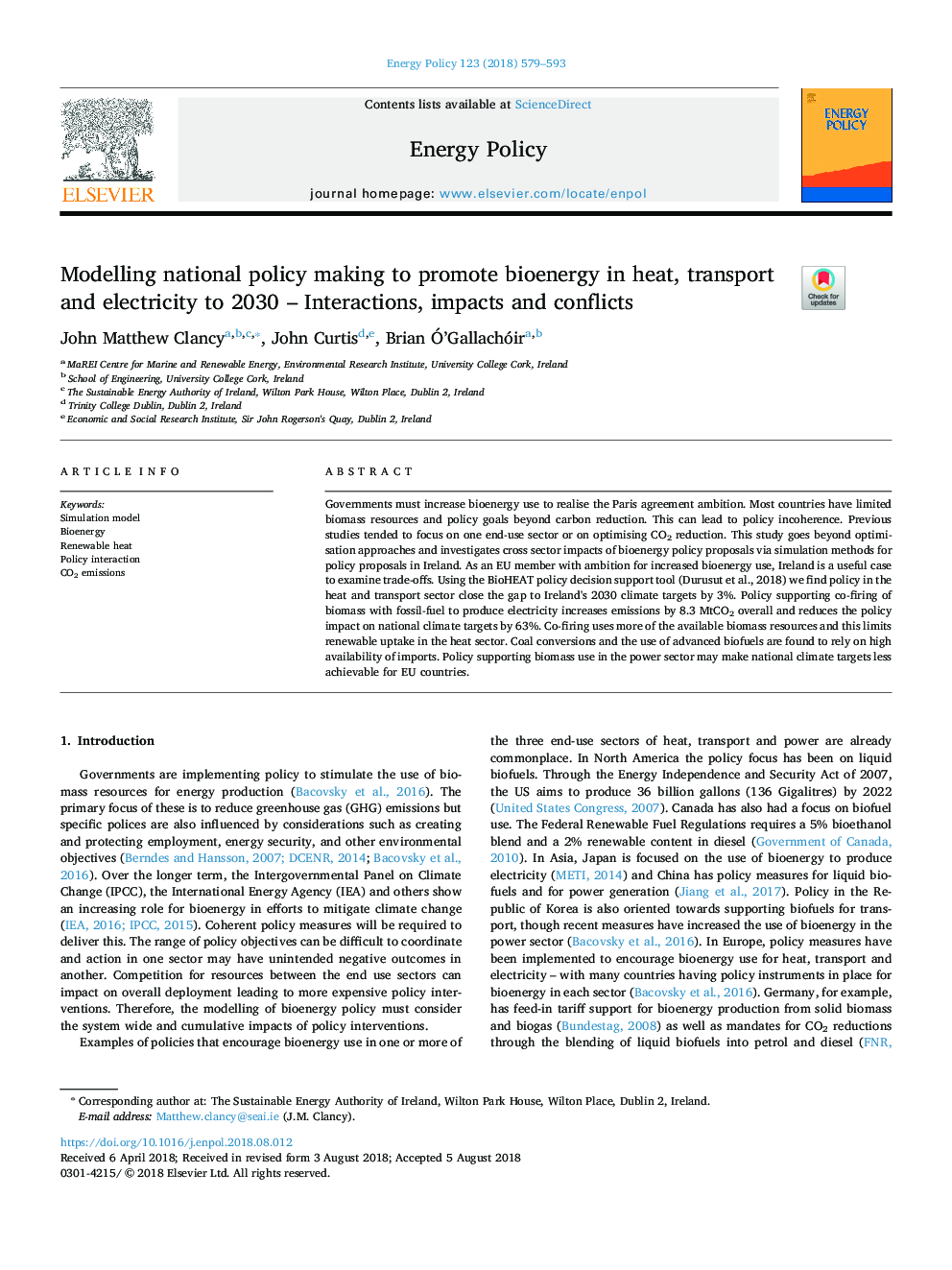| کد مقاله | کد نشریه | سال انتشار | مقاله انگلیسی | نسخه تمام متن |
|---|---|---|---|---|
| 11032280 | 1645633 | 2018 | 15 صفحه PDF | دانلود رایگان |
عنوان انگلیسی مقاله ISI
Modelling national policy making to promote bioenergy in heat, transport and electricity to 2030 - Interactions, impacts and conflicts
ترجمه فارسی عنوان
مدل سازی سیاست های ملی برای ارتقای انرژی بیولوژیکی در گرما، حمل و نقل و برق تا سال 2030 - تعاملات، تأثیرات و درگیری ها
دانلود مقاله + سفارش ترجمه
دانلود مقاله ISI انگلیسی
رایگان برای ایرانیان
کلمات کلیدی
موضوعات مرتبط
مهندسی و علوم پایه
مهندسی انرژی
مهندسی انرژی و فناوری های برق
چکیده انگلیسی
Governments must increase bioenergy use to realise the Paris agreement ambition. Most countries have limited biomass resources and policy goals beyond carbon reduction. This can lead to policy incoherence. Previous studies tended to focus on one end-use sector or on optimising CO2 reduction. This study goes beyond optimisation approaches and investigates cross sector impacts of bioenergy policy proposals via simulation methods for policy proposals in Ireland. As an EU member with ambition for increased bioenergy use, Ireland is a useful case to examine trade-offs. Using the BioHEAT policy decision support tool (Durusut et al., 2018) we find policy in the heat and transport sector close the gap to Ireland's 2030 climate targets by 3%. Policy supporting co-firing of biomass with fossil-fuel to produce electricity increases emissions by 8.3 MtCO2 overall and reduces the policy impact on national climate targets by 63%. Co-firing uses more of the available biomass resources and this limits renewable uptake in the heat sector. Coal conversions and the use of advanced biofuels are found to rely on high availability of imports. Policy supporting biomass use in the power sector may make national climate targets less achievable for EU countries.
ناشر
Database: Elsevier - ScienceDirect (ساینس دایرکت)
Journal: Energy Policy - Volume 123, December 2018, Pages 579-593
Journal: Energy Policy - Volume 123, December 2018, Pages 579-593
نویسندگان
John Matthew Clancy, John Curtis, Brian Ã'Gallachóir,
